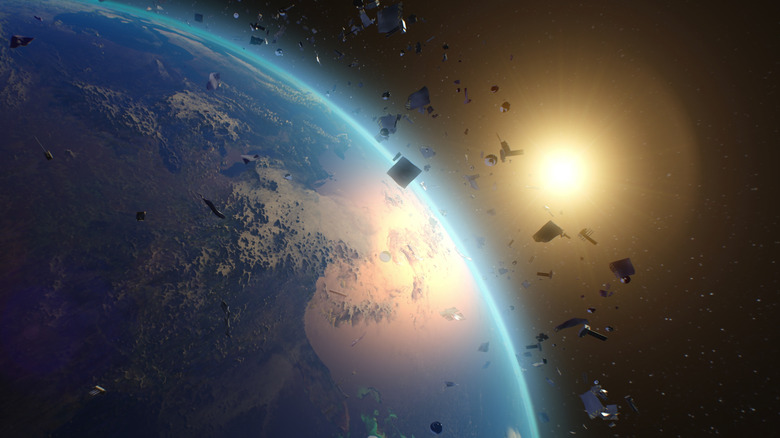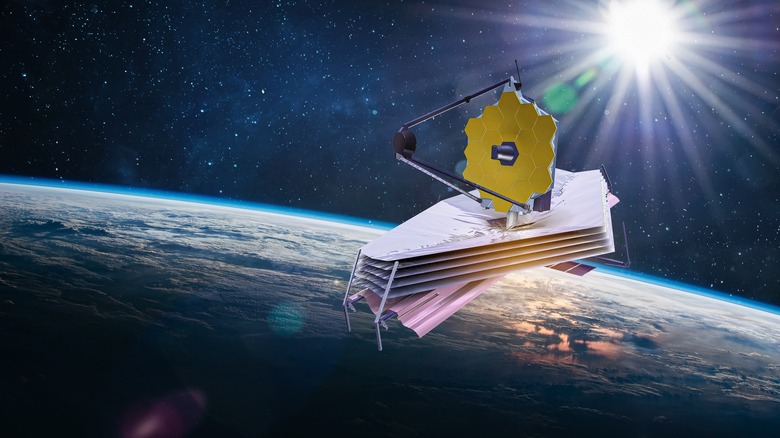How One Company Is Solving The Space Junk Problem
As it turns out, littering in space can result in much more than a fine and a slap on the wrist. NASA reported in May 2021 that there were 23,000 objects "bigger than a softball" currently floating around in low Earth orbit. It also noted that there were 500,000 or so objects in orbit that were much smaller than that — around one centimeter in size, at a ballpark estimate — and 100-million objects that are approximately one millimeter in size.
All of this space junk can theoretically pose a significant threat to orbiting spacecraft, such as orbiting satellite dishes, especially since all objects traveling around in low Earth orbit are doing so at roughly 15,700 mph, according to NASA. Decluttering Earth's outer atmosphere is a growing concern for space agencies and private space corporations, particularly given that launching new spacecraft into Earth's outer atmosphere is highly likely to result in the production of additional waste.
There is already one private corporation that is trying to clean things — or at least keep track of what's out there to avoid collisions wherever possible. The Science Applications International Corporation (SAIC) has made it its mission to register as many space-borne objects as it can. That way, they can be kept track of and, for now, avoided.
What happens in space, stays in space
On April 15, Fox News released a two-minute video summarizing NASA's increasing concerns surrounding the ongoing space junk issue. It included comments made by SAIC Space Business Lead, David Ray, who assured Fox how important it is that any parties operating in space know how to avoid colliding with free-floating objects, saying that the SAIC wants to learn how to navigate around existing space junk and create the "highways and byways" to ensure the safest experience for everyone operating off-world.
As tensions between Russian and American space agencies make cooperation increasingly untenable in the wake of Russia's aggressive invasion of Ukraine, handling the international security risk posed by potential collisions between space junk and spacecraft may fall to individual agencies, such as the U.S. Space Force, with the help of private corporations like the SAIC. Ray acknowledged the importance of maintaining international security in space, saying, "We're using our abilities in space to drive a more diplomatic approach."
The SAIC is monitoring about 5600 payloads and 39,300 other objects in our vicinity. More information about the SAIC's mission progress is available to the public on the official Space-Track website.

